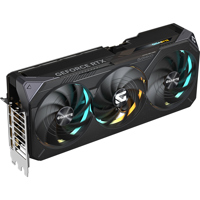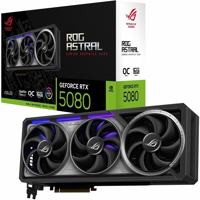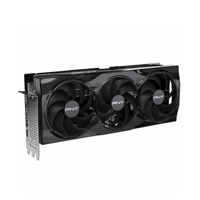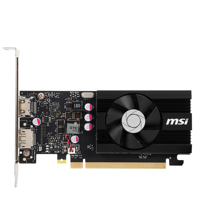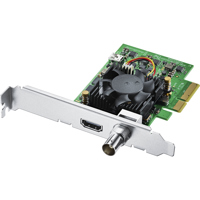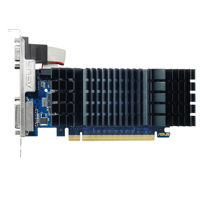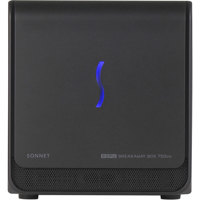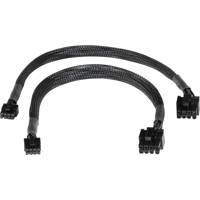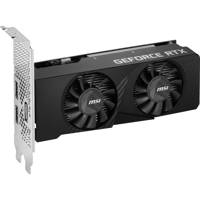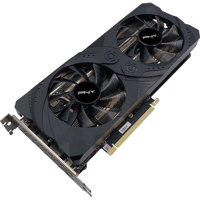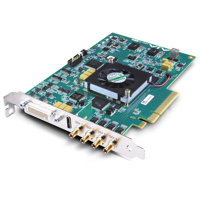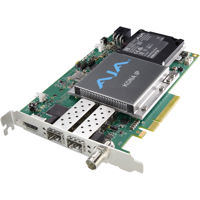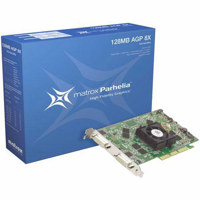Video & Graphics Cards
Save 5% Every Day† with the Adorama Edge Card. Learn More
Gigabyte NVIDIA GeForce RTX 5090 32GB GDDR7 Gaming OC Graphics Card w/Triple Fan
- Experience extreme gaming with GeForce RTX 5090.
- Gigabyte RTX 5090 delivers unmatched performance.
- 32GB GDDR7 memory ensures smooth graphics.
- Triple Fan cooling for optimal thermal efficiency.
- PCI-E 5.0 card bus for next-gen compatibility.
ASUS ROG Astral NVIDIA GeForce RTX 5080 16GB GDDR7 OC Graphics Card w/Quad Fan
- Experience extreme gaming with NVIDIA RTX 5080.
- Optimal 16GB GDDR7 VRAM for graphics performance.
- Quad fan cooling ensures peak GPU temperatures.
- ASUS ROG quality for unmatched compatibility.
- AI-driven performance: 1801 TOPs for demanding tasks.
Temporarily On Backorder
PNY Technologies NVIDIA GeForce RTX 5090 32GB GDDR7 Graphics Card, Triple Fan
- Unleash gaming with powerful RTX 5090 Graphics Card.
- Experience 32GB GDDR7 memory for extreme performance.
- Dominate visuals at 4K 480Hz or 8K 165Hz resolution.
- Advanced triple fan design ensures optimal cooling.
- Future-proof with PCIe 5.0 x16 interface compatibility.
Ways to Save
Sonnet Breakaway Box 850 T5 Thunderbolt 5 eGPU System
- Thunderbolt 5 for enhanced processing power.
- 850W power ensures reliable GPU performance.
- Seamless compatibility with NVIDIA/AMD GPUs.
- Efficient cooling for stable clock speeds.
- Boost graphics memory with external eGPU.
MSI NVIDIA GeForce GT 1030 4GB DDR4 Low-Profile OC Graphics Card
- NVIDIA GeForce GT 1030: Enhanced Graphics Capability.
- 4GB DDR4 Memory: Experience smooth, responsive performance.
- Boost Clock 1430 MHz: Delivers fast Processing Power.
- Low Profile Design: Ideal for compact computer builds.
- HDMI & DisplayPort: Supports dual 4K high-res displays.
Blackmagic Design DeckLink Mini Monitor 4K PCIe Playback Card
- 6G-SDI & HDMI 2.0a: Versatile video output options.
- PCIe Interface: Ensures rapid data transfer rates.
- 10-bit Color Precision: Achieve superior color fidelity.
- Ultra HD Support: Delivers stunning 4K playback.
- Multi-Platform: Compatible with Mac, Windows, Linux.
ASUS NVIDIA GeForce GT 730 2GB GDDR5 Low Profile Graphics Card
- Superior graphics performance for crisp visuals.
- 2GB GDDR5 video memory for smooth gaming.
- Low profile design, optimized for compatibility.
- Efficient NVIDIA GeForce GT 730 processing.
- Reliable ASUS GPU delivers consistent output.
Ships from Manufacturer
Sonnet 750ex eGPU Breakaway Box
- Boost Graphics Performance with eGPU Breakaway.
- Supports 375W Cards for Enhanced Graphics Power.
- Thunderbolt 3 for Fast, Reliable Connectivity.
- 750W Power Supply Supports High-End Video Cards.
- Charge Laptops with 85W Power Delivery Feature.
Ships from Manufacturer
Sonnet GPU Card Auxiliary Power Cable Set for 2019 Mac Pro, 2-Pack
- Essential GPU cable set for 2019 Mac Pro.
- Ensures optimal graphics card power delivery.
- Includes two 8-pin to 8-pin power connectors.
- Specifically designed for AMD Radeon RX 6900 XT.
- Provides reliable power for demanding GPUs.
MSI NVIDIA GeForce RTX 3050 6GB GDDR6 Low-Profile OC Graphics Card with Dual Fan
- Superior performance with NVIDIA GeForce RTX 3050.
- 6GB GDDR6 memory for seamless graphics processing.
- Low-profile design ensures versatile compatibility.
- Dual fan cooling for optimal thermal management.
- Boost clock of 1492 MHz for enhanced speed.
Temporarily On Backorder
PNY Technologies GeForce RTX 3060 Ti 8GB UPRISING Gaming Graphics Card, Dual Fan
- PNY GeForce RTX 3060 Ti: Enhanced Graphics Performance.
- 8GB GDDR6 Memory: Experience smooth, fast gaming visuals.
- Dual Fan Design: Keeps your graphics card cool under load.
- PCIe 4.0: High-speed connectivity for optimal performance.
- HDMI 2.1 & DisplayPort 1.4: Multi-screen, high resolution.
Special Order
AJA KONA 4 8-Lane PCIe 2.0 Video and Audio Desktop I/O Card
- KONA 4: PCIe 2.0 card for pro video workflows.
- Supports 4K/UltraHD video I/O for high-quality output.
- Digital video output: 3G-SDI, HDMI v2.0b for crisp visuals.
- Features 16-channel embedded audio for superior sound.
- Hardware up/down/cross-conversion ensures compatibility.
Special Order
AJA KONA IP 8-Lane PCIe 2.0 Video & Audio Desktop I/O Card
- Supports 4K/UltraHD video formats for superior quality.
- PCIe 2.0 ensures high-speed video and audio processing.
- HDMI output delivers pristine digital video clarity.
- Up to 16-channel embedded audio for professional sound.
- SMPTE ST 2110 IP video input/output for broadcast.
Special Order
Matrox Parhelia 8x 128MB High Fidelity Graphics Display Card for Windows
- Experience superior graphics with 128MB memory.
- High Fidelity Matrox card for Windows systems.
- Supports DualHead & TripleHead display configurations.
- Achieve max 2D/3D resolution of 2048 x 1536.
- DVI output supports up to 1600 x 1200 resolution.
Special Order Item
